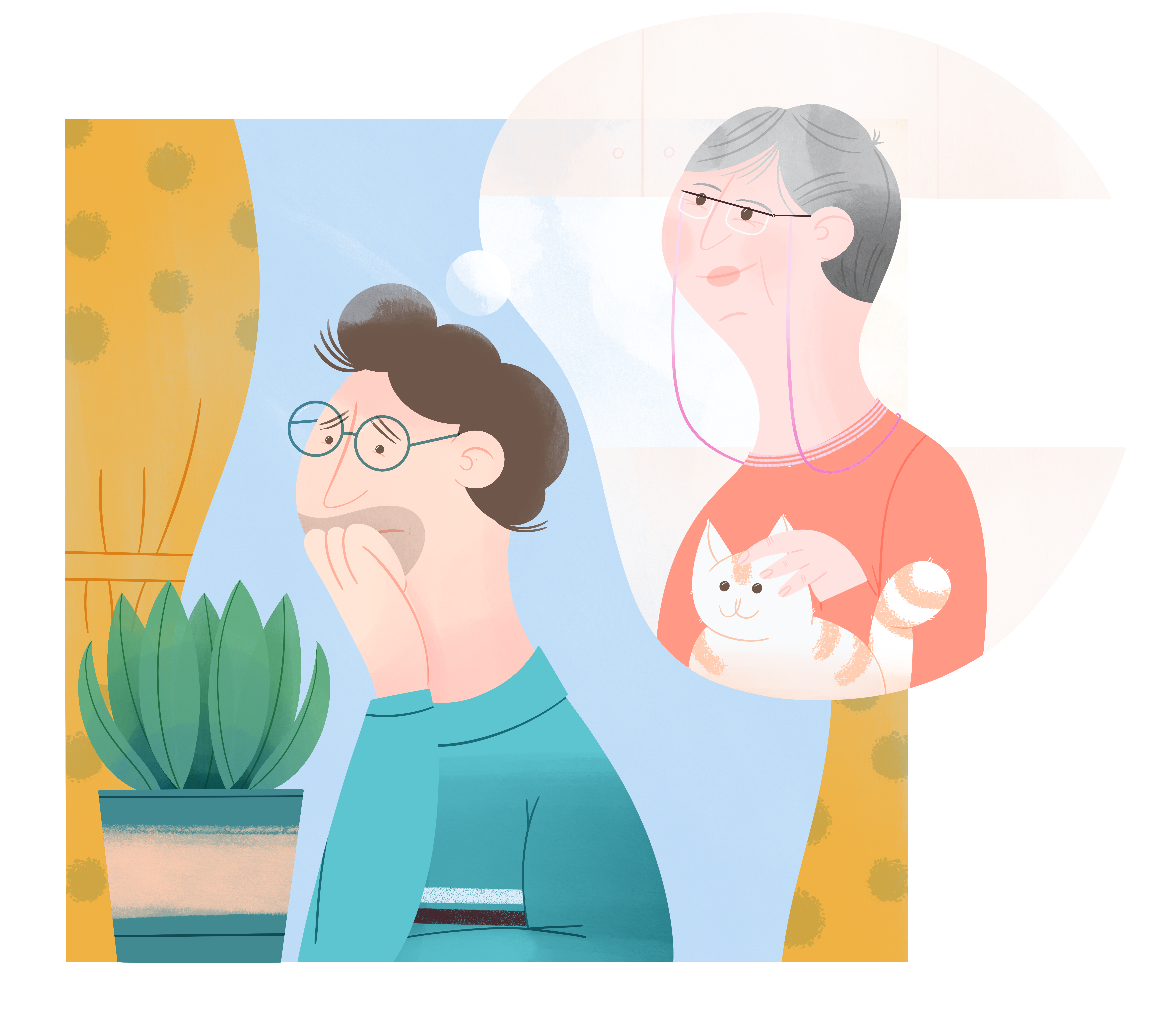Are you a caregiver for a child or a person with autism?
Here you will find information about autism spectrum disorder, tips for coping with everyday life, and recommendations for preparing for important transitions in one’s progress.

Autism, or autism spectrum disorder, is a neurodevelopmental disorder usually present in early childhood. It may become more evident as children begin school.
Individuals with autism may experience difficulties in the area of communication and social interaction. Their behaviour and their limited or repetitive interests are not always easy to understand for those around them.
In Québec, the prevalence of autism spectrum disorder has been rising steadily. It is estimated that it affects approximately 1.5% of the population, and on average, four times more boys than girls.
Every person with autism has a unique combination of signs and symptoms.
Characteristics
Examples of manifestation
Body
Unusual movements (rocking, clapping)
Resistance to physical contact
Difficulty looking people in the eye
Attitudes, reactions
Numerous periods of frustration on a daily basis, yelling, the person hits out or hits themself
Difficulty in coping with outings, new things, transitions, unexpected events, certain types of lighting, clothing textures, food, or certain noises
Difficulty starting or maintaining a conversation
Games, activities
Tendency to be repetitive, such as lining up small toy cars over and over
Obsession with specific rituals, such as sorting food
Autism spectrum disorder is not a disease. In general, the trajectory of the person with autism depends on the following:
The behavioural manifestations and communication difficulties of people with autism affect their ability to receive adequate medical and psychiatric care throughout their lives.
Certain clues, some of which manifest themselves between the ages of one and two years, attract the attention of parents. If you have any concerns about your child’s development, do not hesitate to consult a professional.
To obtain an evaluation:
If necessary, the child is referred to a child psychiatrist or to an evaluation team composed of different specialists (psychologist, audiologist, occupational therapist, neurologist, psychiatrist) depending on the region’s approach. These services are free. However, in the public system, it takes 12 to 24 months to get an appointment for an evaluation. The assessment is based on tests, specific observations and case history.
The diagnosis is the beginning of the child’s accompaniment: by the parents and relatives, as well as by the health and social services network. Contact the ID-PD-ASD access point in your community and ask about the Québec government’s Agir tôt program.
The diagnosis is an important step. Among other things, it allows access to:
The diagnosis is also the beginning of a major task for the parents: the search for support and services in the health network and the community, living with a child who is now known to be autistic, the quest for moments of respite. Then comes the mourning of the “dream” child, the search for help, the organization of daily life, tensions in interactions often caused by the communication difficulties inherent to autism, the learning of facilitating strategies, the prevention of accidents, the relationship with multiple stakeholders, the reconciliation of different roles or even the announcement of the news to family and friends.
Every step of the way, you’ll have to manage complex issues. This means:
Ultimately, recognizing yourself as a caregiver of a person with autism is a crucial step in connecting you with other caregivers who are going through the same thing you are experiencing and who, like you, are grappling with the challenges of daily living, communicating with the person you are caring for and managing behaviours. You can also join support groups or telephone helplines.
Transitions are often delicate times. It is recommended to start early to prepare for the transition from school to active life. There is the age of majority at 18 and the end of compulsory education at 21.
The period following the age of 21 is particularly critical. It is a question of finding resources and services for the young adult’s employment, for a drop-in centre or for community services. On this issue, watching the docu-reality series Autiste, bientôt majeur et Autiste, maintenant majeur [Autism, Almost Adult & Now Adult (in French only)] proposed by the channel Moi et Cie of QUB, available integrally online, is highly recommended.
At 17, you can start the process of establishing a protection plan and learn about the new assistance plan for adults proposed by the Curateur public du Québec. In 2021, notary Joanie Lalonde-Piecharski published a book entitled Au-delà des 18 ans. Préparer le passage à l’adulte et l’avenir de votre enfant différent.
Fédération québécoise de l'autisme. Pochette parents.
Gouvernement du Québec. Plan d'action sur le trouble du spectre de l'autisme 2017-2022 – Des actions structurantes pour les personnes et leur famille.
Institut national de santé publique du Québec. Surveillance du trouble du spectre de l’autisme au Québec.
udemnouvelles. De moins en moins de différences notées entre les autistes et l’ensemble de la population.
Nathalie Poirier, Catherine des Rivières-Pigeon. Les aspects positifs et les difficultés de la vie des parents d'enfants ayant un TSA.
Observatoire des réalités familiales du Québec. « Il faut toujours être là » : pas de répit pour les parents d’enfants autistes. Environnement et conditions de vie.
Treating Autism. Comorbidités relatives aux troubles du spectre de l’autisme.
Need to talk?
Contact our Caregiver Support Helpline for counselling, information and referrals.
Every day from 8 a.m. to 8 p.m.
Free of charge.